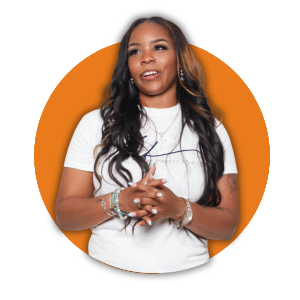Stages of Business Growth for Newer Tax Preparers | Where Are You Now?

Stages of Business Growth for Newer Tax Preparers
Written by Kimberly Fowler
As a tax professional, understanding the stages of business growth is crucial. By identifying where you are in the journey, you can focus on the right tasks to move your business forward.
One of the biggest pitfalls tax preparers face is tackling business-building tasks in the wrong order. You may find yourself working hard on something that’s better suited for a later stage—and then wonder why your efforts aren’t paying off.
In this post, I’ll help you understand the four stages of business growth. Once you recognize your current phase, you’ll know exactly what to focus on and what success looks like at each stage.
STAGE #1: Pre-Startup or Pre-Revenue
This phase is when you bring your tax business into existence. As a new business owner, YOU are the business. There are no plans, contractors, or a team yet.
At this stage, you’re overwhelmed. There’s a lot to do, but little reward—meaning you’re not seeing income yet. You’re juggling many tasks without a clear plan, which can lead to a shaky foundation for your business.
Main tasks at this stage:
-
Build your foundational pieces (services, brand, business structure).
-
Focus on doing things in a timely yet effective manner—without getting stuck here. Many entrepreneurs stall at this stage.
Pitfalls:
-
Marketing too soon without a solid foundation.
-
Getting distracted by “shiny objects.”
-
Feeling overwhelmed due to lack of direction and planning.
Success factors:
-
Discipline with time management—you need focus to get everything done.
-
Invest in expert guidance—get help to avoid wasting time or building a weak foundation.
Next step forward:
Take the time to properly lay your foundation and invest in guidance to ensure you’re not building on shaky ground.
STAGE #2: Early Startup (Survival)
The survival phase begins once you’ve built your foundation and started generating some income. But it’s a stressful time as you’re still doing everything yourself and may be juggling marketing efforts that aren’t working as well as you’d hoped.
This phase is about moving from an expensive hobby to a sustainable business. You’ve got clients (probably from chance or a marketing campaign that worked), but it’s still not enough to provide consistent income.
Main tasks at this stage:
-
Develop a basic marketing framework and test strategies that fit your business.
-
Refine your business foundation if needed—make sure your niche, pricing, and messaging are aligned.
Pitfalls:
-
Unsure of which marketing strategies to focus on.
-
Exhausting hustle with little reward.
-
Lack of client satisfaction and inefficient systems.
Success factors:
-
Consistent lead generation—ensure you have a solid sales funnel for regular client leads.
-
Client satisfaction—focus on delivering value and results.
-
Outsource tasks—delegate to free yourself to work in your zone of genius.
Next step forward:
Evaluate your foundation (niche, services, pricing), outsource tasks to free up your time, and create a smart marketing strategy for consistent client flow.
STAGE #3: Late Startup
The Late Startup phase is when you begin to see the rewards of your hard work. You now have consistent clients and some profit, and may even have a small team or contractors helping with day-to-day operations.
However, there’s still a lot of manual work. Your business might require you to be highly visible on social media, host live webinars, or engage in seasonal events. But as you grow, it’s time to delegate and focus on creating systems to streamline operations.
Main tasks at this stage:
-
Automate systems and processes to save time and increase efficiency.
-
Delegate—hire the right people to take over tasks you no longer need to handle personally.
Success factors:
-
Strong systems in place for consistent income.
-
A growing, effective team that supports your business growth.
Next step forward:
Implement systems, continue hiring, and focus on delegation. The goal is to reduce your personal involvement in day-to-day tasks and move towards a more scalable model.
STAGE #4: Growth
Welcome to the growth stage, where things get really exciting. Your income has reached milestones, and you’re ready to scale your impact.
At this point, you may hire more tax preparers or build a team to serve more clients. Scaling can involve joint ventures (JVs), automation, or new income streams such as webinars or live events. You’ve also moved into a visionary or CEO role, focusing more on business strategy and growth.
Main tasks at this stage:
-
Build your team—hire additional tax preparers, support staff, or administrative help.
-
Delegate so you can focus on strategic growth.
-
Scale your business through automated systems and new revenue streams.
Success factors:
-
Strong team management—continue to hire and manage your team effectively.
-
Strategic focus—move out of the 1:1 service model and unlock new income potential.
Next step forward:
Hire strategically, delegate effectively, and continue to focus on scaling your business.
Recap:
Here are the four stages of business growth:
-
Pre-Revenue: The foundational phase—get everything set up correctly.
-
Survival: The hustle phase—focus on lead generation, client satisfaction, and outsourcing.
-
Late Startup: The growth phase—implement systems and hire a team to reduce your personal involvement.
-
Growth: The scaling phase—expand your team, delegate, and focus on business strategy.
Where are you now? Are you stuck in one of these phases and need help moving forward? Schedule a strategy session with me, and let’s work together to get your tax business unstuck and on the path to success!
To Your Success!
Kimberly E. Fowler
Tax Business Coach, Tax Professional, Entrepreneur


